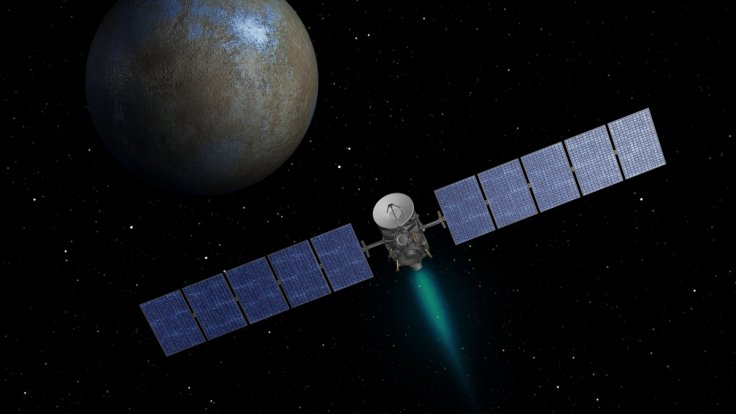
NASA has confirmed that their Dawn spacecraft is dead. The spacecraft which has been exploring deep space for the past 11 years missed its latest check-ins on October 31 and November 1, and thus it is now confirmed that the Dawn has finally run out of fuel.
It should be noted that experts at the NASA were much aware of the fuel drought faced by the Dawn spacecraft. Understanding this threat, NASA put Dawn into its closest orbit yet around the Ceres, the dwarf planet.
Even though Dawn's death was expected, the team of NASA scientists who worked on this project conveyed an emotional adios to the space agency's most trusted probe on deep space.
"The fact that my car's license plate frame proclaims, 'My other vehicle is in the main asteroid belt,' shows how much pride I take in Dawn. The demands we put on Dawn were tremendous, but it met the challenge every time. It's hard to say goodbye to this amazing spaceship, but it's time," said Marc Rayman, the Mission Director and Chief Engineer at NASA's Jet Propulsion Laboratory.
Thomas Zurbuchen, associate administrator of NASA's Science Mission Directorate in Washington said in a recent statement that the data collected by Dawn from Vesta and Ceres are very crucial to broadening human understanding about the evolution of the solar system.
"Today, we celebrate the end of our Dawn mission - its incredible technical achievements, the vital science it gave us, and the entire team who enabled the spacecraft to make these discoveries. The astounding images and data that Dawn collected from Vesta and Ceres are critical to understanding the history and evolution of our solar system," said Zurbuchen.
Dawn spacecraft was launched in September 2007 with the mission of studying two large objects of the asteroid belt, Vesta and Ceres. This space probe from NASA is the first spacecraft to visit either Vesta or Ceres, and the first to visit a dwarf planet, arriving at Ceres in March 2015.
Carol Raymond, the principal investigator at the Jet Propulsion Laboratory revealed that the data collected by Dawn from the Ceres and Vesta will help humans to understand the conditions existing around young stars which will in turn help to know where and how life would have formed in the solar system.
A few days back, NASA has hinted that their Mars Opportunity rover could be lost forever. NASA speculates that the recent raging storm that hit the red planet could have damaged the solar-powered device.









